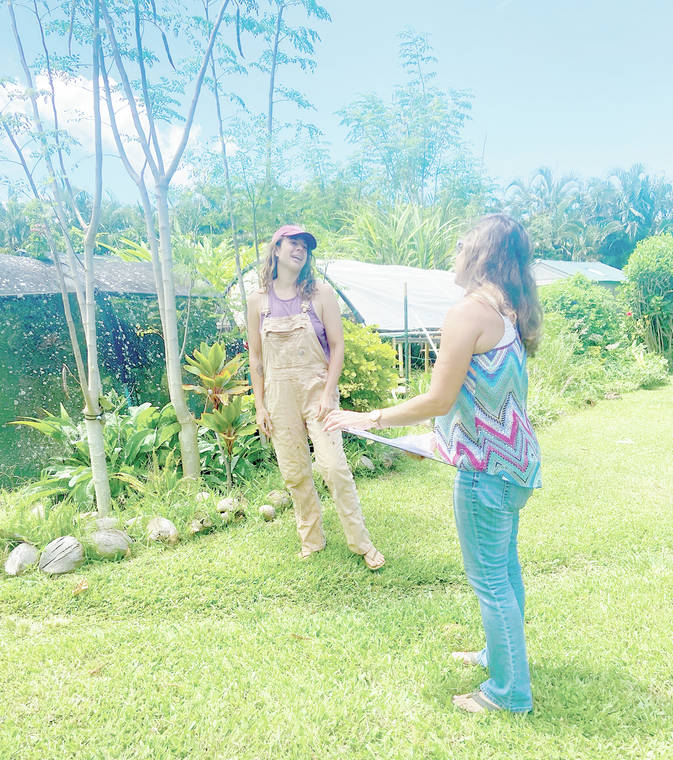HANALEI — Some independent Kaua‘i farmers struggle to keep pace with the U.S. Department of Agriculture regulations required for their locally grown products to be distributed.
Lisa Rhoden, food and safety director for North Shore Economic Vitality Partnership, an organization that identifies the potential for regional economic growth and promotes community-driven solutions using local resources, has an answer for farmers looking to expand their business.
The Safe and Stable Kaua‘i Farms Initiative is a project that involves North Shore EVP, Malama Kaua‘i and the University of Hawai‘i College of Tropical Agriculture and Human Resources’ Cooperative Extension Service.
The cohort of 40 participating fruit and vegetable producers is currently undergoing the next phase of the project, which includes on-site farm assessments to identify needed upgrades to infrastructure and operations for food safety.
The organization was recently granted $280,246 in additional funding from the Coronavirus Aid, Relief, and Economic Security Act to assist with the initiative.
“We want farmers to be sustainable and self-sufficient, and I think we have the capacity to do that here in Hawai‘i,” Rhoden said. “Small farmers are doing what they can to help grow for us, and when (people) say they want small foods, that is where it comes from.”
Forty Kaua‘i farms were represented at a three-day Produce Safety Alliance grower training. Upon completion of the class, attendees received certificates of completion for the Food Safety Modernization Act, according to a press release.
PSA training is the most crucial step in improving food-safety knowledge and achieving compliance with federal regulations, according to a press release.
“It is super-exciting and truly
remarkable that we were able to train 40 farms so quickly through this program,” said Emilie Kirk, CTAHR assistant extension agent in sustainable and organic agriculture, who coordinated the PSA training. “This more than doubled the number of farmers who have completed the training to date on Kaua‘i.”
The Safe and Stable Kaua‘i Farms Initiative is looking to the next phase of the project, which includes on-site farm assessments to identify needed upgrades to infrastructure and operations food safety, according to a press release.
After the on-site farm assessments there is a grant program, which could provide each farm $5,250 to spend on those needed upgrades for food safety, technology and business needs. The funds are intended to help farms become safer and open up new business opportunities.
“I learned quite a bit, not just getting used to using Zoom, but also basic information as the backbone of where to start as far as all the product safety,” said Adam Killermann of Ajar Inc. “I didn’t expect so much emphasis on pests in the field and how easy it is for animals walking around to contaminate the process.”
The last stage of the project is advanced workshops from North Shore EVP this fall on infrastructure, record-keeping, employee training and a worker protections standard certification.
The workshops will provide supplies for farms to implement what they learn immediately, such as mobile hand-washing stations, record-keeping templates, first aid kits, measuring equipment and personal protective equipment.
If the current cohort does not fill the optional workshops, the sessions will be open to other farmers who would like to participate.
“This is a great example of a public-private partnership and social investment that benefits many farms directly,” Megan Fox of Malama Kaua‘i said. “Food safety certifications are becoming a more-common demand from wholesale and institutional buyers, and the grant program is something farmers have been asking for for years.”





